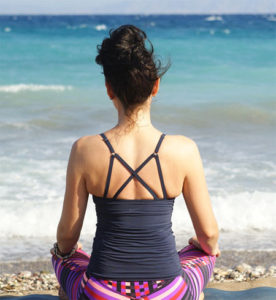 The Benefits of Writing
The Benefits of Writing
Happy New Year! May 2018 bring you health and happiness.
Who would have thought that the process of writing could actually help to heal our bodies, as well as our minds?
It’s well known that keeping a private daily diary/journal can be very therapeutic for the mind. Writing down your thoughts and feelings helps you to to understand them more clearly. A private journal is for your eyes alone, so you can write in it without fear of judgement. Simply keeping a journal can help you deal with stress, depression, or anxiety.
Journaling has wonderful benefits for mental health, but in 1986, psychology professor James Pennebaker discovered that a particular kind of writing, which he called “expressive writing”, can have a measurable and significant effect on our bodies. Since then, further research has shown that it can:
- make wounds heal faster
- boost immune function
- improve the health of asthma sufferers
- improve the health of rheumatoid arthritis patients
- significantly decrease the number of visits to the doctor
- decrease troublesome symptoms of breast cancer
There may be other benefits of expressive writing that are, as yet undiscovered. It could even have a beneficial effect on histamine intolerance. But what exactly is it?
Expressive Writing
“Expressive writing is personal and emotional writing without regard to form or other writing conventions, like spelling, punctuation, and verb agreement… Expressive writing pays no attention to propriety: it simply expresses what is on your mind and in your heart… Expressive writing is not so much what happened as it is how you feel about what happened or is happening.”
[Reference: “Write Yourself Well: Expressive Writing“, by John F Evans Ed. D. Psychology Today. Posted Aug 15, 2012]
Claudia Hammond, in her BBC Future article “The Puzzling Way That Writing Heals the Body” (2 June 2017) describes studies in which “…volunteers typically do some expressive writing, then some days later they are given a local anaesthetic and then a punch biopsy at the top of their inner arm. The wound is typically 4mm across and heals within a couple of weeks. This healing is monitored and again and again, and it happens faster if people have spent time beforehand writing down their secret thoughts.”
Expressive writing works just as well if people use it *after* they are wounded.
How to Use Expressive Writing
So how is expressive writing performed? John F Evans in his article “Write Yourself Well” suggests the following general instructions for expressive writing:
1. Time: Write a minimum of 20 minutes per day for four consecutive days.
2. Topic: What you choose to write about should be extremely personal and important to you.
3. Write continuously: Do not worry about punctuation, spelling, and grammar. If you run out of things to say, draw a line or repeat what you have already written. Keep pen on paper.
4. Write only for yourself: You may plan to destroy or hide what you are writing. Do not turn this exercise into a letter. This exercise is for your eyes only.
5. Observe the Flip-out Rule: If you get into the writing, and you feel that you cannot write about a certain event because it will push you over the edge, STOP writing!
6. Expect heavy boots: Many people briefly feel a bit saddened or down after expressive writing, especially on the first day or so. Usually this feeling goes away completely in an hour or two.
Expressive writing costs nothing, it’s easy to do, it doesn’t take much time, it has no harmful side-effects and it has been scientifically proven to have health benefits. So no matter whether you wish to boost the healing of your mind or your body, it’s worth trying!







